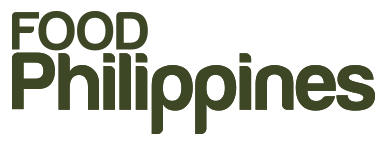The Philippines’ Department of Trade and Industry (DTI) will promote the country's food exports to the Middle East and North African (MENA) region in Gulfood at the Sheikh Rashid Hall, Dubai World Trade Centre, United Arab Emirates (UAE) on February 17-21, 2019.
Led by the DTI’s Center for International Trade Expositions and Missions (CITEM), the FoodPhilippines pavilion in Gulfood will showcase the country’s top halal-certified food selections including processed fruits and vegetables, marine products, coconut products, ethnic and gourmet products, among others.
“As one of the world’s biggest stages on food trade, Gulfood will enable the Philippine firms to further tap into the immense opportunities in the MENA region since it will give them access to buyers, stakeholders and notable personalities in the global food and hospitality sector,” said DTI-CITEM Executive Director Pauline Suaco-Juan.
Gulfood is one of the world’s biggest fairs for the food and hospitality industries. Gulfood is held annually in Dubai. Its previous edition was attended by 98,000 visitors and participated in by 5,000 exhibitors from 198 countries worldwide.
For its 24th edition, the five-day event will carry the theme 'The World of Food. The World of Good.' with a highlight on the latest consumer trends and innovation. It also aims to present new trade opportunities, as well as cooking demonstrations by world-renowned culinary masters.
The event will be held at heart of the global halal demand chain, the GCC or the Gulf Cooperation Council, which refers to the political, social and economic alliance between Muslim-dominated countries, namely Saudi Arabia, UAE, Qatar, Kuwait, Oman and Bahrain.
“With the growing number of halal food producers in the Philippines, this participation is part of DTI’s strategic move to elevate our local exporters in the global halal food chain with our premium food and beverages,” explained Suaco-Juan.
In its past participation, the Philippine delegation generated USD 89.7 million worth of total sales, leveraging on some of the country’s best-selling products, including coconut and its by-products; rice, mangoes, canned fruits, canned seafood and fermented marine products.
For its next participation, the CITEM‐led food delegation is looking to bag at least USD 90 million export deals as the Philippines expands its encroachment into the international halal market by empowering its halal‐certified local entrepreneurs.
“With the fast-moving market and the increasing number of Filipinos in the Middle East, we are confident that the Philippine food delegation will attract more potential buyers in Gulfood,” said Suaco‐Juan.
“This participation also aims to widen the Philippines’ market reach and influence in the international halal network as the country further asserts itself in this lucrative market by aligning its halal-accreditation systems and institutions,” she added.
As of 2018, the global halal market is valued at USD 2.6 trillion with the bulk or 62 percent of the halal market comprised of food and beverages followed by pharmaceuticals, 22 percent; cosmetics and personal care, 10 percent; and nutraceutical, 6 percent.
According to David Smith of Global Futures and Foresights Study, the halal industry is projected to be a USD 10-trillion industry by 2030, making it one of the fastest growing consumer segments in the world.
The Philippines joined last year in the International Halal Accreditation Forum (IHAF), an independent, non-government network of accreditation entities mandated to enforce halal standards in their countries and territories.
Mandated to protect the growing number of halal consumers and to facilitate international trade, IHAF establishes a solid ground for the global industry of halal food and non-food products.
The DTI eyes halal to become a major industry in the Philippines due to several key factors, including the increasing demand for halal products even in non-Muslim markets; increased awareness of the availability, quality and integrity of halal products; increase in number of certifiers to ensure quality, integrity of halal products in the market; emerging new categories of halal-certified products and services; globalization and integration of markets; and growth in e-commerce and online platforms.
The Philippine participation in the Gulfood 2018 is organized by CITEM, in partnership with the Philippine Trade and Investment Center (PTIC) in Dubai, as one of the DTI’s major efforts to intensify the promotion of Philippine halal food products in overseas trade shows. - Source CITEM
For more information, visit citem.com.ph/gulfood.
Mujer















